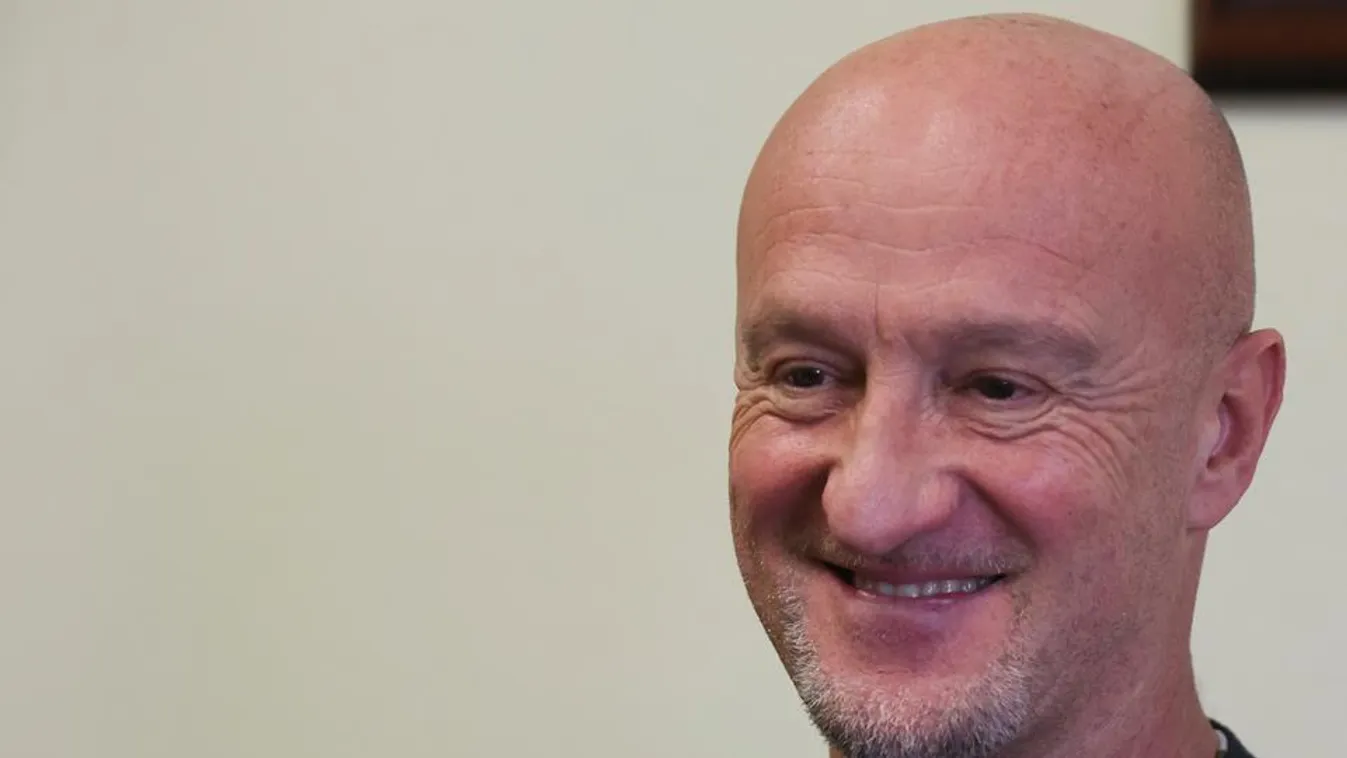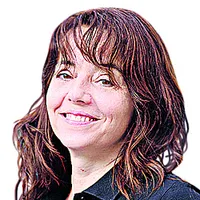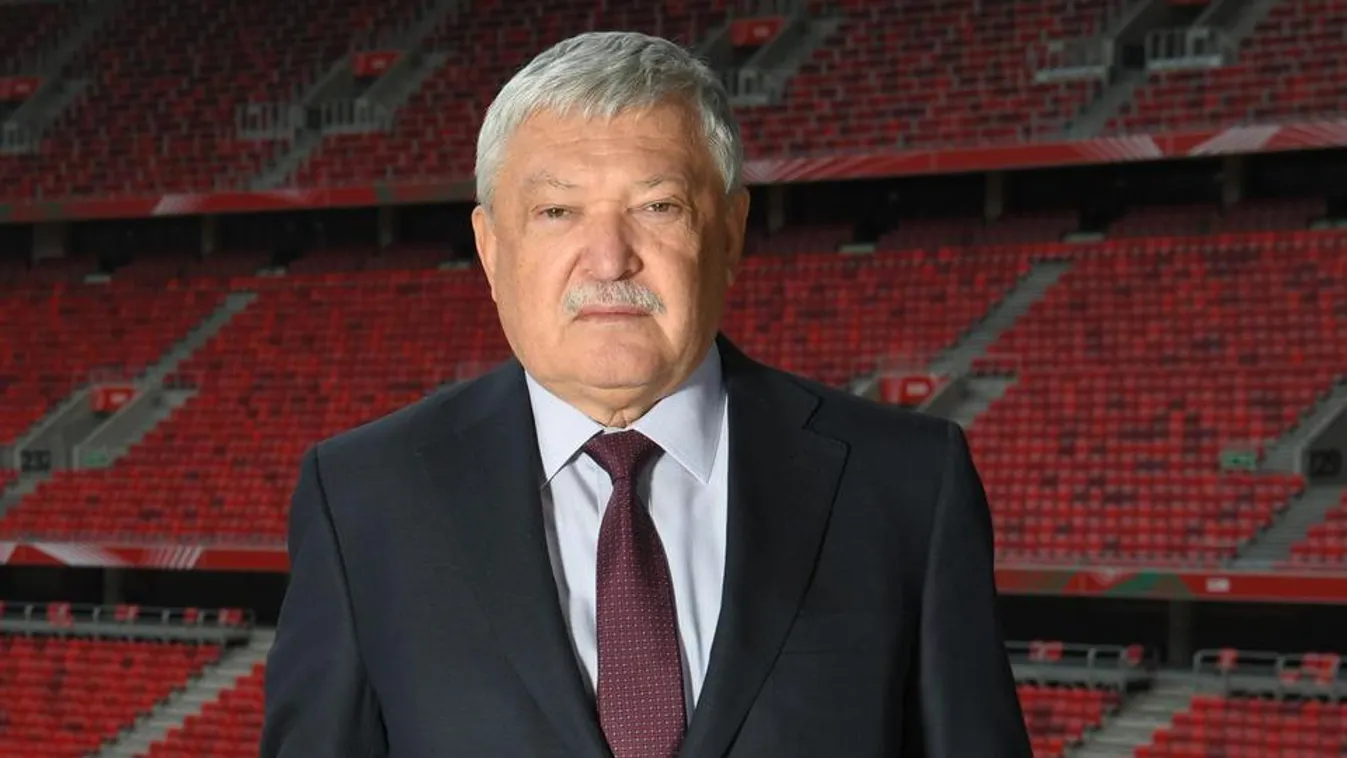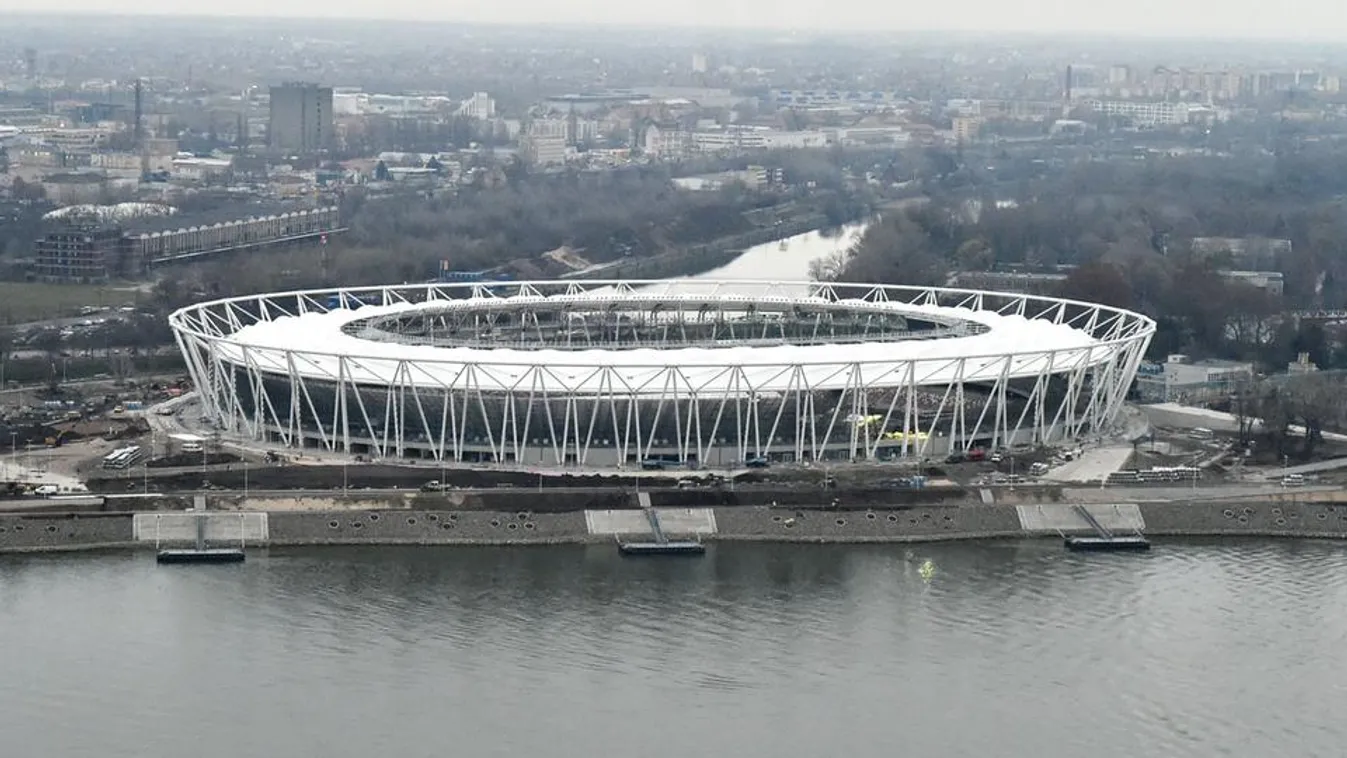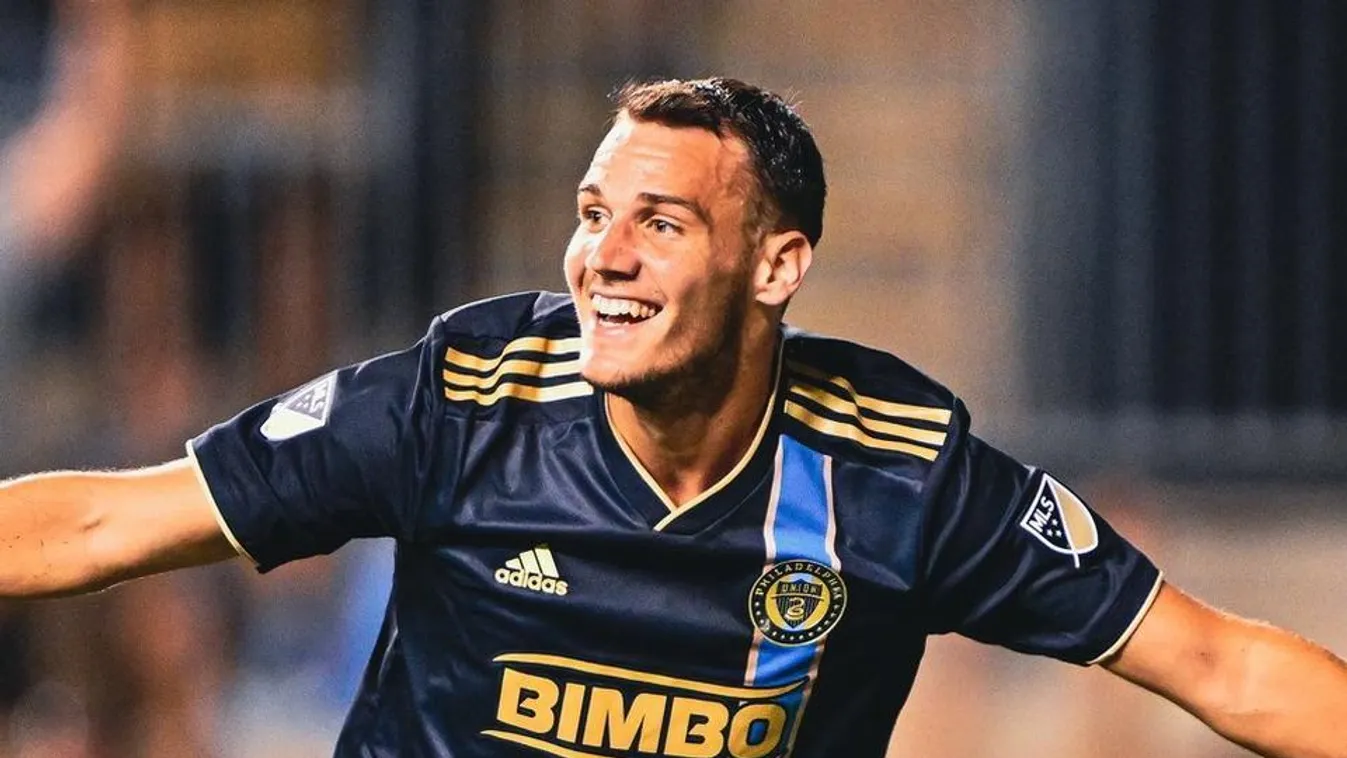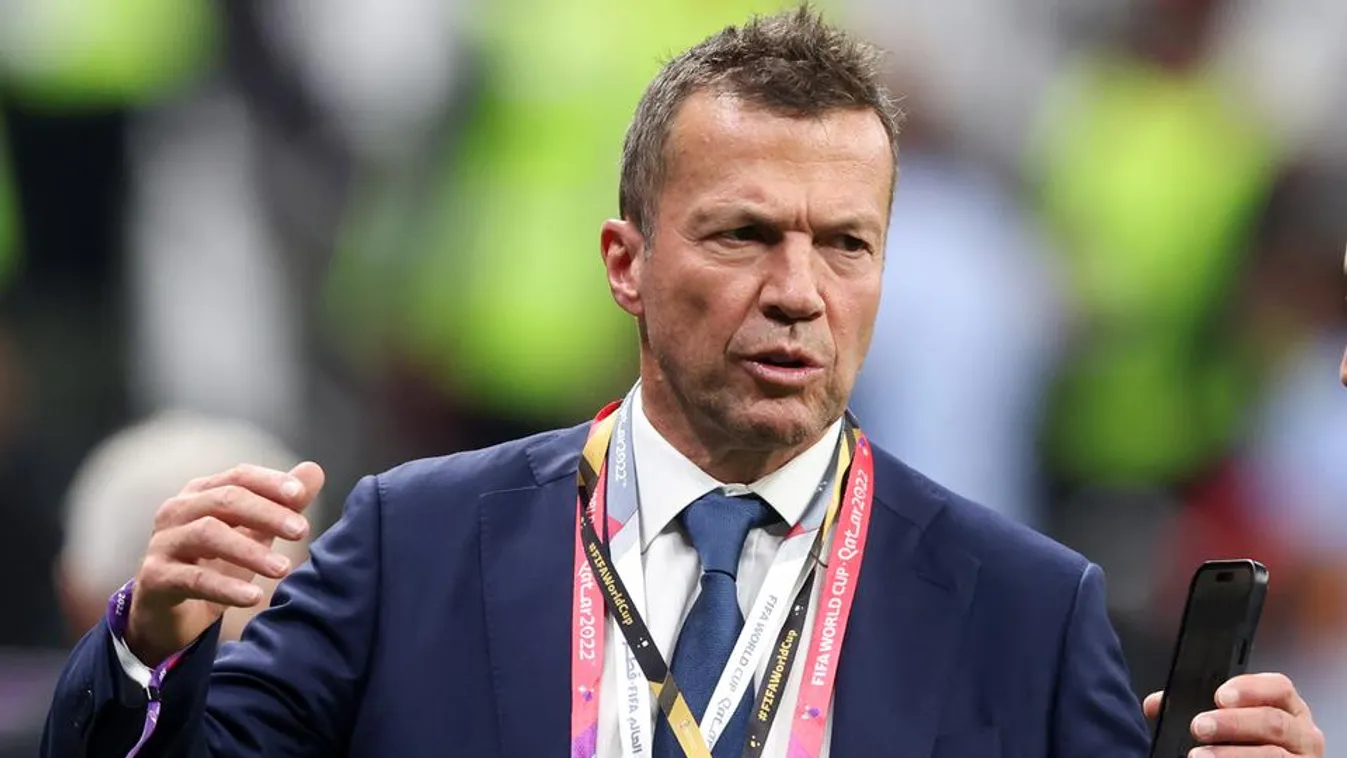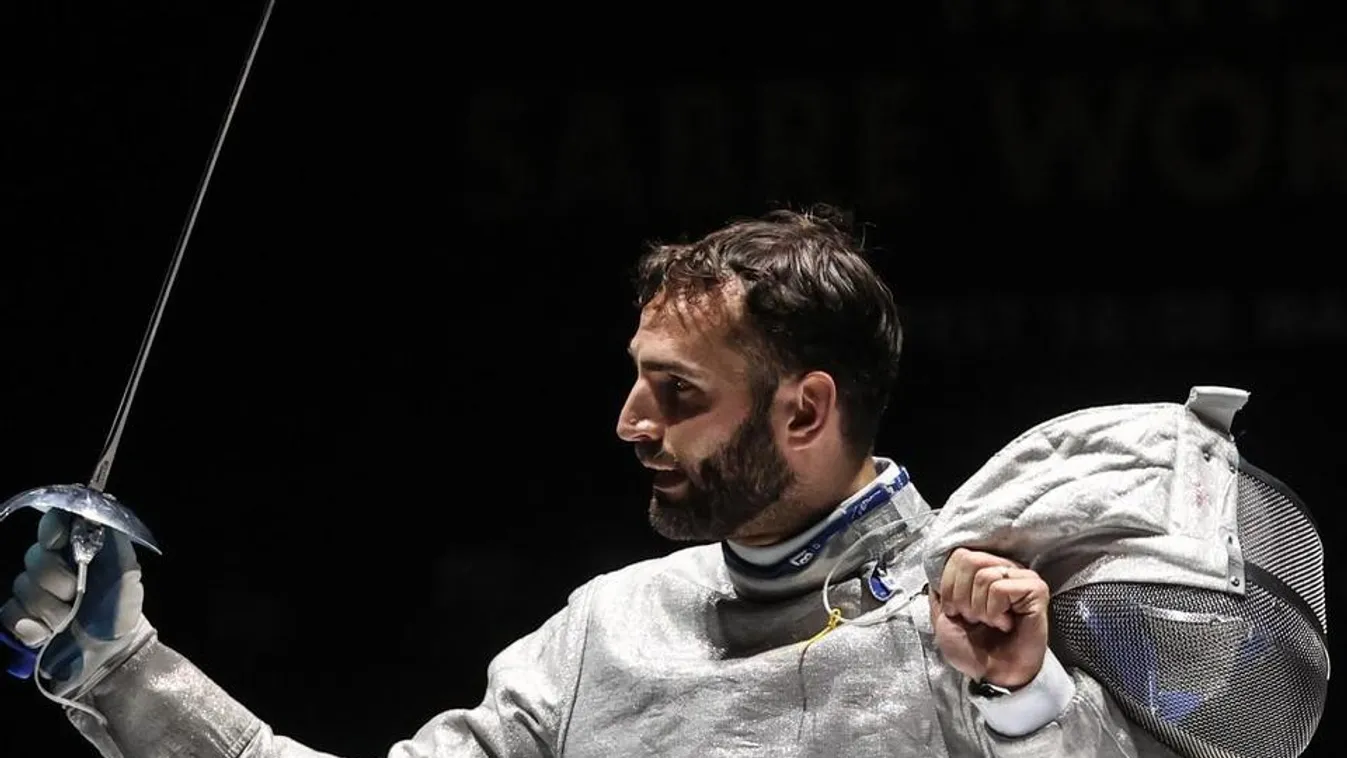The Gyurta brothers swam together, not against each other
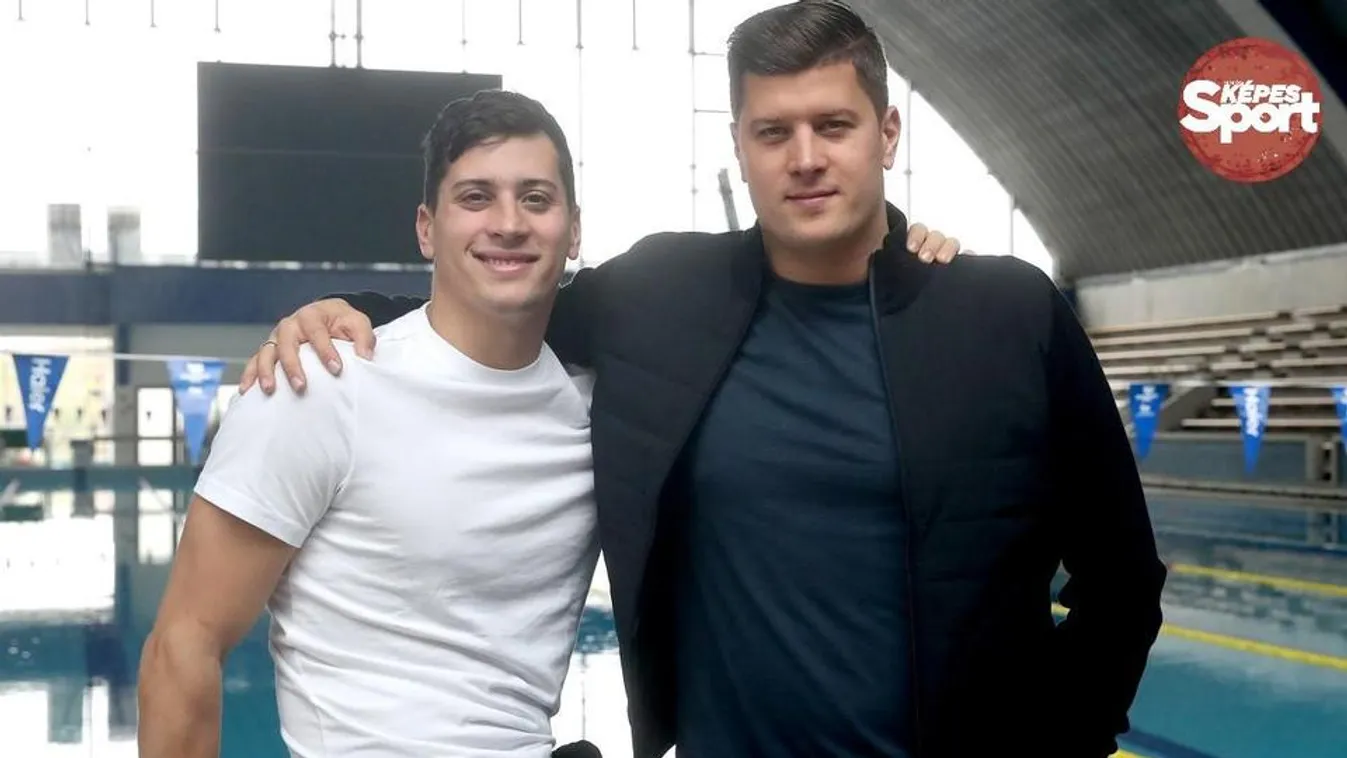
| Born: May 4, 1989, Budapest |
| Clubs: Darnyi Tamás SK, BVSC, Jövő SC, UTE |
| Coaches: Kata Perjámosi, Sándor Széles, Ferenc Kovácshegyi, Balázs Virth, József Nagy |
| Achievements:Olympic champion (200 m breaststroke, 2012), Olympic 2nd (200 m breaststroke, 2004), 3-time World champion (200 m breaststroke; 2009, 2011, 2013), World champion 3rd place (200 m breaststroke, 2015), 2-time European Champion (200 m breaststroke; 2010, 2012), 2-time European Championships 3rd place (4x100 m mixed medley relay; 2012, 2014), 2-time short-course world champion (200 m breaststroke; 2012, 2014), Short-course worlds runner-up (200 m breaststroke, 2010), 6-time short-course European champion (200 m breaststroke; 2006, 2007, 2009, 2011, 2013; 100 m breaststroke, 2013), 2-time short-course European Championships runner-up (100 m breaststroke, 2009; 200 m breaststroke, 2015) |
Gergely Gyurta: It feels good to come back here. I miss it a little, even though I haven't felt this at all until now.
– Is it some kind of nostalgia?
Dániel Gyurta: The many, many memories bring out the good feelings in a person. I'm thirty-three years old, and I've spent more time in this pool than anywhere else in my life.
– Are the difficult days and any bad experiences erased?
Dániel: What we call a bad experience is relative. If you want to win the Olympics, you have to be aware that the road to victory will not be easy, and certainly not smooth. We have learned that sport and success come with hours and days of agony, minutes of oxygen deprivation, and conflicts with coaches and teammates. When you fight against the stopwatch every day for twenty years, when you fight to catch up with the best in the world in races, you have to go through tough times. But we have been given so much from swimming, from the sport, to make up for the suffering and even forget the bad.
Gergely: For example, I can't think of a single bad experience here in the Komjádi swimming complex although I had some in my career. There were crying fits, and we had a few hours of suffering in the gym. My goodness, how much time we spent in that gym...
Dániel: And there, on lanes 6, 7, and 8. Our coaches, Sándor Széles, Ferenc Kovácshegyi, and Balázs Virth, were standing next to us on the pool edge: they walked down the distances we swam. I swam in lane seven - I can't remember why I swam in lane seven; maybe because Norbert Rózsa seemed to have been training in lane seven. Those who have ever swum in Komjádi know well that lane seven is a special lane because the water rotation device makes it harder to swim in one direction as the current is coming against you, and of course, the same is true in the other direction because it then helps you swim faster.
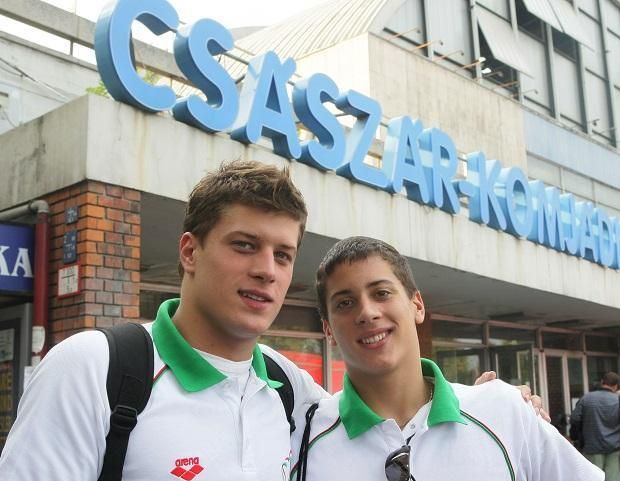
Born: September 12, 1991; Budapest |
| Clubs: Sport+ SE, Jövő SC, UTE |
| Coaches: Katalin Perjámosi, Sándor Széles, Balázs Virth, Ferenc Kovácshegyi, Luca Philip |
| Achievements: European Championships 3rd place (1500 m freestyle, 2012), short-course Worlds 3rd place (1500 m freestyle, 2010), short-course European Champion (1500 m freestyle, 2013), short-course European Championships 3rd place (400 m medley, 2017) |
Gergely: My brother was my role model, I always tried to compete with him.
– And you started swimming because your brother also swam?
Gergely: No, but I remember that when I joined the older group, the one in which Dani also swam, I started to improve.
– You're known as good brothers, and you just mentioned that your brother is your role model. The Hungarian anthem was played for you at the European Championships and you won a World Championship medal, yet it seems a bit like you grew up in the shadow of your big brother. Have you never felt that?
Gergely: When you have an Olympic champion brother, you are inevitably compared to him. But it wasn't a burden for me, I didn't feel like I was living in Dani's shadow, and we didn't even swim in the same event. I still had the shadow, but I had more positive benefits than negative consequences from having Dani as a brother.
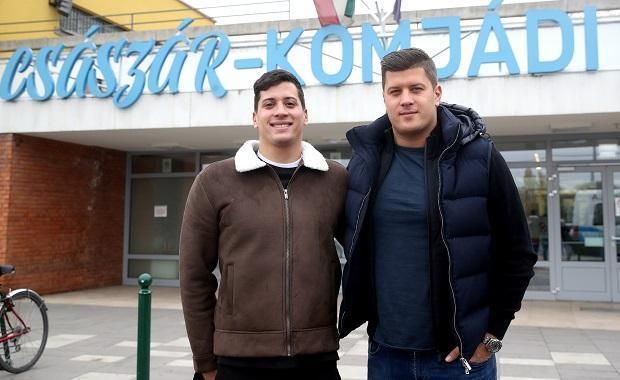
– What do you mean?
Gergely:For example, I could always ask him questions, he always passed on his experience, warned me about difficult situations, and he was the one who sometimes restrained me in training. It was always typical of me that I could handle the load well, but sometimes Dani would tell me that I didn't need to swim so much because less is sometimes more.
– How have you experienced this situation from the other side?
Dániel: It's a double-edged sword because there is a wonderful side to it, and that is that the family and the team are the same. I was fifteen years old when I won the silver medal in the 200m at the Athens Olympics, which also brought me difficulties. And of course, it wasn't easy for Gege from then on because everyone called him the little Gyurta. Our coaches, our parents, did their best to give him the same opportunities, but there's no doubt about it: it must have been a burden to compete with the same name. There were expectations for me, and maybe even more for him - because of me. That's certainly why my brother had to train with increased intensity so that he wouldn't feel that at the end of the race, it was the lack of preparation that made the difference. One thing is for sure, I have trained with very few swimmers in my career who could handle the workload like my brother. But he also mentally took the strain because he knew he needed to work hard to have a chance of a good result.
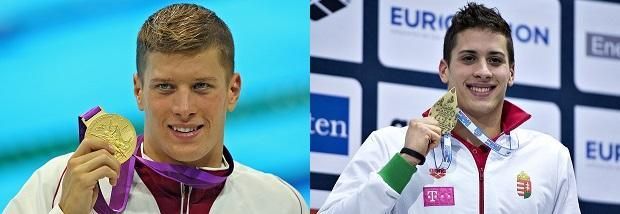
| Dániel Gyurta and Gergely have often said that of their three coaches, Ferenc Kovácshegyi was the closest to them mentally, he was their second father. But what memories does the coach have of the two boys?
„Dani and I had worked together for 17 years, we stuck by each other through thick and thin, which is no ordinary story, especially when you look at the fashionable rotation of the competitors' coaches nowadays” – said Ferenc Kovácshegyi. – „Ours was an old-fashioned relationship, so pride is the first word that comes to mind when I think of Dani. Then, as soon as he could, Gege joined us, who has always been an incredibly hard-working boy, and he quickly fell in line. I have many, many fond memories of them, including 2009, when Balázs and I accompanied Gege to the European Youth Championships in Prague, where he won a gold and a silver. Meanwhile, Sanyi prepared Dani at home for the World Championships in Rome, where he won for the first time in his career. Gege was on the podium in Prague, with the lanky boys next to him. Oh, how nice it was... I still keep in touch with them, we meet sometimes, I hope that after Dani, Gege will find his place in his life after swimming!” |
– Which of you were the most difficult in training?
Dániel: I think it depended on what period of preparation we were in.
Gergely: But I was the one who talked back to the masters...
Dániel:I don't think at this level it's very easy with anyone. The life of a competitor is full of challenges, how we react to them depends on the individual. I don't deny that I had more difficult periods with my coaches, deadlocks that I had to overcome from time to time. I knew my coaches' personalities, but it was not surprising, because from September to July we prepared very hard, and then there were two, three or four minutes in which everything was decided.
Gergely:Or five hours.
Dániel: Indeed, in your case, five hours is also true. Dealing psychologically and mentally with the fact that you have one chance a year and what if it doesn't work out at that time is very difficult. And also, when you know you can do it, but the coach in training doesn't tell you the time you want to hear at the end of the distance. Situations, moments like these bring the tension out of the competitors.
– Since you mentioned five hours, let's remember that five hours! It was in Gwangju, at the 2019 World Championships, when you were leading by almost 100 meters going into the final lap of the twenty-five-kilometer race. But then something happened that you had never experienced before, and the asthma attack caused your lead to disappear, and you ended up in tenth place. But you could have reached the top there...
Gergely: Despite what happened, the Gwangju World Championships was the best competition of my career. I was at my best then, I had the best preparation behind me, and even so, it gave me a huge boost. At the time, I had doubts about whether I could make it to Tokyo: my dream was to make it to another Olympics. Gwangju confirmed to me that I could do it.
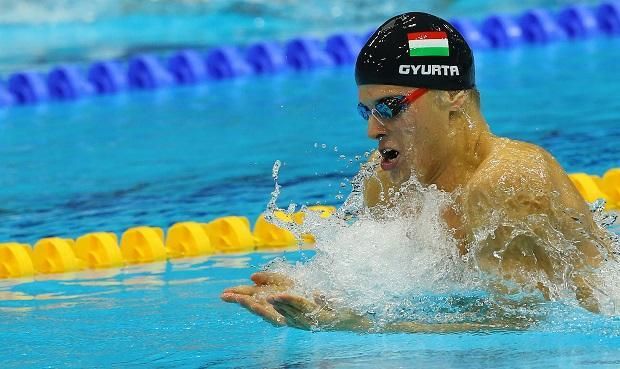
– So, the record remained in Herning. However, it was a joint record for you two that Gergely became the European short-course champion in the 1500m in 2013 while it was Dániel's only race in which he doubled, winning both the 100 and 200 meters. I think that's the kind of race a pair of brothers dreams of.
Dániel: Yes, and the 2010 World Short-Course Championships in Dubai was like that, too.
Gergely: And the European Championships in Debrecen in 2012 when our parents were there.
Dániel: What we must have felt at these races is something that many of you can probably imagine, but how did our parents feel...? Or our coaches? Uncle Sanyi Széles was very proud of us in Herning; the year before I became Olympic champion, he must have felt that he had finally stepped out of Tamás Széchy's shadow, and then the year after London came the successful European Short-Course Championships in Herning.
– In the last two decades, there has always been a Gyurta in Hungarian swimming. The future will be strange in this respect. Was the decision to retire a difficult one to make?
Gergely:I had planned until Tokyo, then came a year when I swam with Katinka Hosszú, but that was more of a finishing round for me. I didn't compete, I helped Katka, so it was a period when I gradually let go of swimming. When I was at the national championships in Debrecen in the spring as a spectator, I felt for the first time that I was able to finish my career, and I was no longer in the mood to swim some more. I had often thought that I would miss it all: the training camps, the trips, the competitions - but after Debrecen, I no longer had the desire to go back.
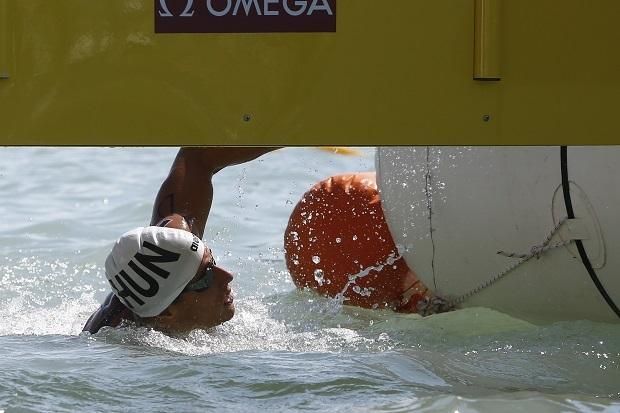
– How long does a swimmer stay a swimmer after his or her career?
Dániel: The desire to get out there, to compete, to see what we can do, remains: it's in our blood and it will stay there. Our personality is fundamentally defined by the fact that we were competitors. Getting up at the crack of dawn to jump in the cold water, to swim fifteen to twenty kilometers every day, are much easier to let go. When I watch competitions, I know exactly what I would do if I were standing on the starting block. I mean mentally because my body would no longer be able to execute what I know in my head. And I'm not saying I don't miss that feeling. Sometimes I do miss the part of racing and the tactical warfare. I liked to solve the problem that I can beat anybody from here, from this small country. By the way, Uncle Sanyi helped me to solve it because he told me that if I wanted to beat the best, I had to train more, smarter, and better. I know that sounds like a cliché, but that's what was needed for success. And of course, finding the coach whose personality best matches yours.
– You two had not one, but three coaches on your side.
Dániel:Mentally, we were the closest to Uncle Feri Kovácshegyi, and it was Balázs Virth who did most of the training that Sándor Széles "created."
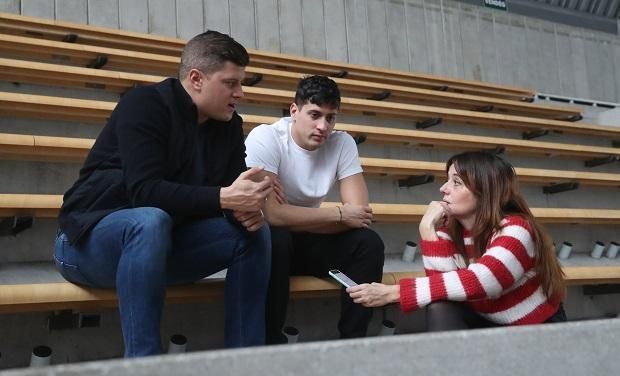
– So it was a blessing that you had three coaches?
Dániel: A blessing, definitely. There was a reason why our team wanted to be broken up... But we stuck together and nothing and no one could compete with that.
– Do you still sometimes think of Sándor Széles?
Gergely: I owe everything to him. That I swim with such technique, that I have such a high tolerance. When I was in Uncle Sanyi's group, he told me that I would not have a stopwatch for a long time. For a whole year, we didn't use a stopwatch, he just honed my technique. He watched me, corrected me, and told me immediately if I made a mistake. Then, throughout my career, I built on what I had learned from him. I visited his grave a few days ago, I visit him regularly.
Dániel: I was also recently at Uncle Sanyi's grave on Megyeri út, thanking him for what he gave me. When I think of Uncle Sanyi, the first thing that comes to mind is how we started working together. It was amazing how he both carried on and transformed the Széchy legacy, stripping what he considered unnecessary and using only the parts that he thought would build us. It's no secret that as we moved forward in time, my relationship with him was not what it was in the beginning, but that doesn't matter, nor should we remember him as he was in his last years. Uncle Sanyi had a fantastic brain, his nickname was “Agy” (Brain). And he called himself a “doctor” because he believed he had become one. But he didn't have to become one, he was one. The Széles legacy is now carried on by Balázs Virth.
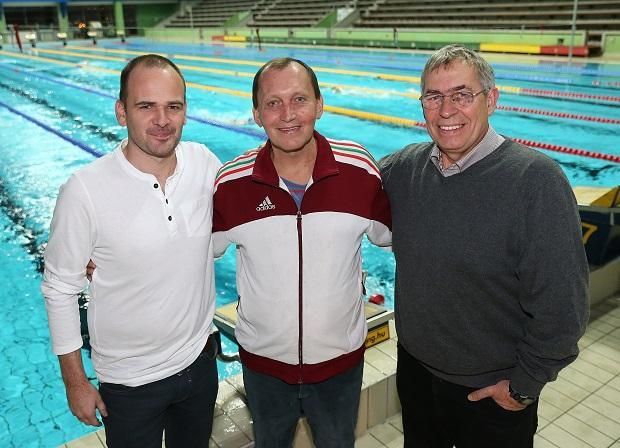
– Balázs Virth has already told us that he and Ferenc Kovácshegyi recall Sándor Széles in almost every training session.
Dániel: Uncle Sanyi was a funny, happy person. When he was in a good mood, he was always the center of attention. But when he was in a bad mood, he was very difficult to work with.
Gergely: But he was an extremely kind-hearted man, let's not forget that!
Dániel: And he always looked for the fault within himself, never blamed others. He was always driven by what he could do to make us even better.
Gergely:I remember that after a bad training session or a bad race, he would sit us down here in the Komjádi stands and explain to us point by point what we needed to change, where we needed to improve.
– That was the past, and they obviously take a lot of that with you to civilian life. Dániel has already found his place, where do you go from here?
Gergely: I don't even know myself. For now, I'm looking for what makes me happy, where I can find myself, where, like in swimming, I can improve and get better and better.

(The article published in the Saturday supplement of Nemzeti Sport, in the November 12, 2022 issue of the magazine Képes Sport.)
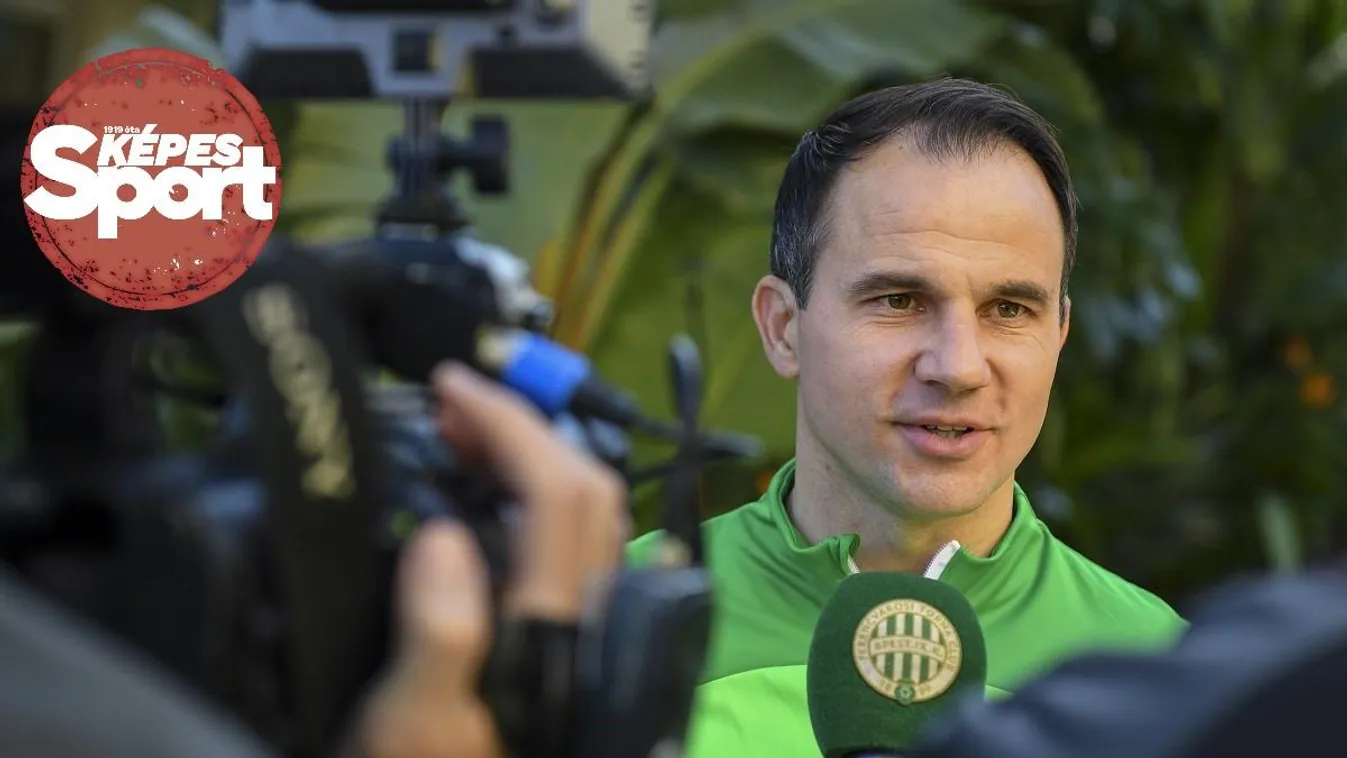
Tamás Hajnal: Ferencváros’ primary mission is success!

Davis Cup: Zoltán Nagy says the team did everything to win
